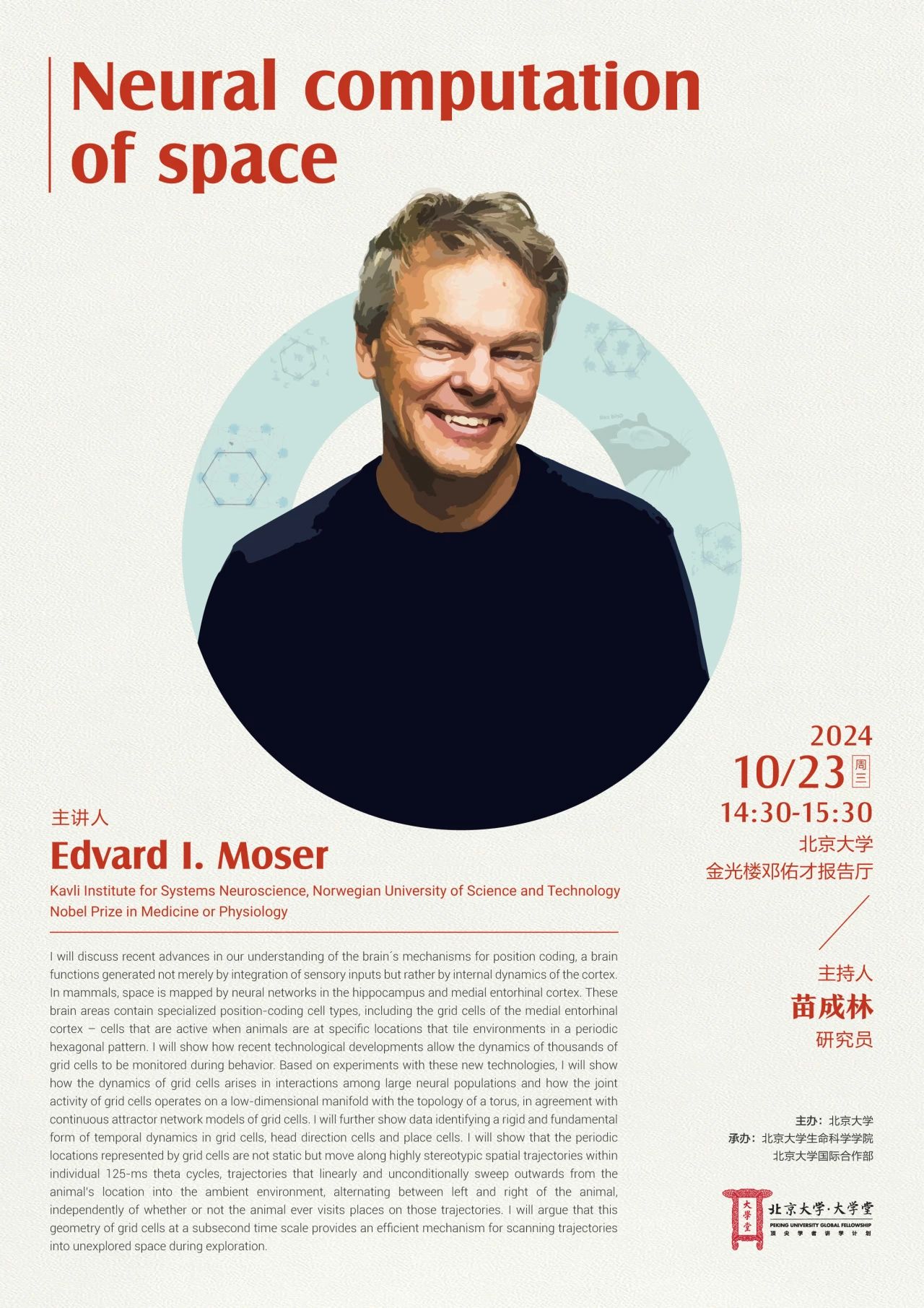Speaker: Edvard I. Moser (Kavli Institute for Systems Neuroscience, Norwegian University of Science and Technology Nobel Prize in Medicine or Physiology)
Time: 14:30-15:30 p.m., Oct 23, 2024, GMT+8
Venue: Youcai Deng Lecture Hall, School of Life Sciences, PKU
Abstract:
I will discuss recent advances in our understanding of the brain's mechanisms for position coding, a brain functions generated not merely by integration of sensory inputs but rather by internal dynamics of the cortex.
In mammals, space is mapped by neural networks in the hippocampus and medial entorhinal cortex. These brain areas contain specialized position-coding cell types, including the grid cells of the medial entorhinal cortex - cells that are active when animals are at specific locations that tile environments in a periodic hexagonal pattern. I will show how recent technological developments allow the dynamics of thousands of grid cells to be monitored during behavior. Based on experiments with these new technologies, I will show how the dynamics of grid cells arises in interactions among large neural populations and how the joint activity of arid cells operates on a low-dimensional manifold with the topology of a torus, in agreement with continuous attractor network models of grid cells. I will further show data identifying a rigid and fundamental form of temporal dynamics in grid cells, head direction cells and place cells. I will show that the periodic locations represented by grid cells are not static but move along highly stereotypic spatial trajectories within individual 125-ms theta cycles, trajectories that linearly and unconditionally sweep outwards from the animal's location into the ambient environment, alternating between left and right of the animal, independently of whether or not the animal ever visits places on those trajectories. I will arque that this geometry of grid cells at a subsecond time scale provides an efficient mechanism for scanning trajectories into unexplored space durina exploration.
Source: Peking University Global Fellowship
